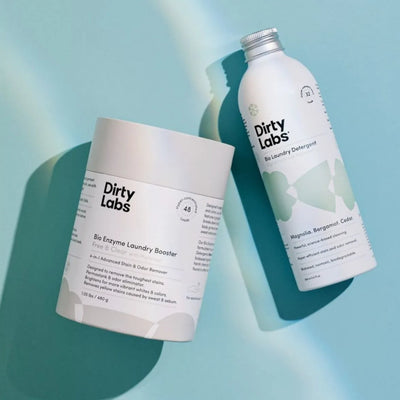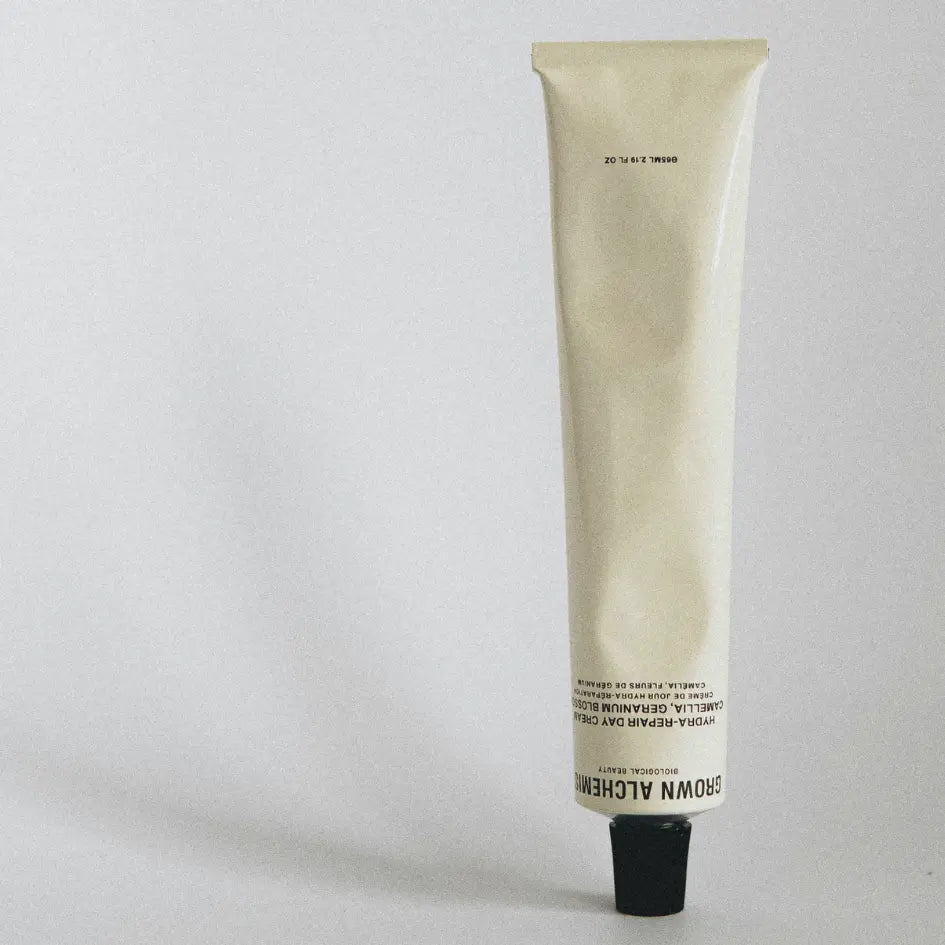Packaging
Dirty Labs has eliminated virtually all single-use plastic from its product packaging. Its liquid cleaners are packaged in infinitely recyclable aluminum bottles with fully recyclable caps. Powder products (like the laundry booster and dishwasher detergent) come in recyclable cardboard canisters with no plastic components. All shipping and product boxes are paper-based.
Ingredient Sustainability
Dirty Labs formulates its cleaners with an emphasis on biobased, biodegradable ingredients. The Signature Bio Laundry Detergent's ingredient list is composed of plant-based surfactants (like lauryl glucoside and methyl glucamide from coconut glucose), naturally derived enzymes, minerals, and biodegradable solvents (97% of its carbon content is USDA certified biobased). Dirty Labs explicitly avoids fossil-derived chemicals wherever possible; only trace synthetic components are used, and then only for safety or allergy reasons.
The Free & Clear detergent contains no added fragrance and is EWG Verified and National Eczema Association accepted. All formulas are confirmed readily biodegradable (60–100% degradation in 28 days). Ingredients are largely renewable: surfactants and enzymes are plant- or microbe-derived, and any palm oil derivatives are RSPO certified sustainable. Even the enzyme production uses a biorenewable fermentation process (biosynthesis) rather than petrochemical synthesis.
Dirty Labs' commitment to third-party standards underscores its ingredient sustainability: its products carry certifications like EPA Safer Choice (ensuring each ingredient meets strict health and eco safety criteria), USDA Certified Biobased, Green Seal, and even EPA Safer Choice Partner of the Year (2021) recognition.
Energy Use and Footprint
Its hyper-concentrated formulas dramatically shrink the size and weight of each unit of cleaning power, which means fewer trucks on the road and lower transportation emissions.
However, when it comes to operational transparency, Dirty Labs provides limited information. The company has not published data on its manufacturing energy sources, factory emissions, or corporate carbon footprint goals.
Waste Management
Dirty Labs formulas contain no unnecessary fillers (no added water, no microplastic-based thickeners, etc.), meaning fewer raw materials are wasted in production and less volume ends up needing disposal. In manufacturing, the reliance on biotechnology and green chemistry likely minimizes hazardous waste byproducts.
Dirty Labs minimizes waste through product design (concentrated, no pollutants) and likely maintains a modest manufacturing footprint, but it has not published quantitative waste or water reduction metrics for its facilities.
Business Model
The brand maintains a small, evergreen product line (a few multi-purpose detergents and cleaners). The company's marketing strategy explicitly pushes against overconsumption: during the typical Black Friday frenzy, Dirty Labs ran a campaign “saying no to hyperconsumption and yes to clean water,” donating 5% of sales to a water charity instead of steep discounts.
Refill/reuse model: While Dirty Labs doesn't have a direct refill pouch program, it facilitates reuse by selling larger refill bottles and durable accessories (e.g. a glass dispenser and silicone beaker for measuring) to encourage buying in bulk and reusing dispensing tools.





